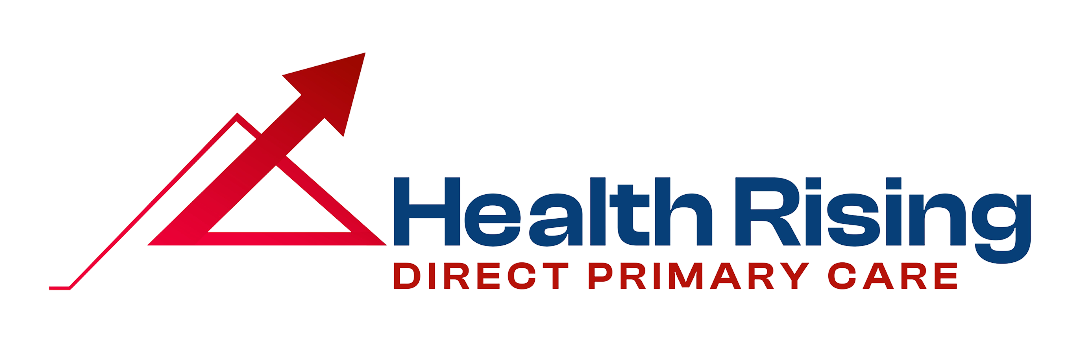When you or a loved one starts feeling under the weather, your first instinct might be to ask for antibiotics. It feels like a shortcut back to health. But that reaction, while common, often leads to unnecessary treatment that misses the real cause—and can even make things worse.
At Health Rising DPC, we believe knowledge is a powerful form of medicine. When you understand what needs antibiotics and what doesn’t, you take an important step toward better health outcomes and fewer setbacks. This guide walks you through the nature of infections, when to seek care, and why restraint often brings the best results.
The Nature of Infections: What Makes You Sick

The Difference Between Bacterial and Viral Infections
Most common infections fall into one of two categories: bacterial or viral. Bacterial infections are caused by single-celled organisms that thrive and multiply in the body. Strep throat, urinary tract infections, and some types of pneumonia are typical examples.
Viral infections, however, involve viruses that hijack your cells to reproduce. These include the common cold, influenza, and most sore throats.
While symptoms can look similar, the path to healing is very different.
Why This Distinction Matters for Treatment
Antibiotics only work against bacteria. They cannot kill viruses. When prescribed for viral infections, antibiotics offer no benefit and may even cause harm. Side effects, allergic reactions, and disruption of gut health are possible. Over time, inappropriate use also contributes to antibiotic resistance, making future infections harder to treat.
Understanding this difference helps prevent overuse and protects your long-term health.
When You Probably Don’t Need Antibiotics
Minor Illnesses the Body Can Handle on Its Own
Your body is equipped with an incredible immune system. Many mild illnesses resolve without intervention. Colds, low-grade sore throats, and mild stomach bugs are good examples. These infections are viral and typically do not respond to antibiotics.
Supportive care is often all you need. That means drinking fluids, resting, eating nourishing foods, and letting your body work through the process.
How to Know When to Watch and Wait
If your fever is low, your energy is slowly improving, and your symptoms are manageable, you likely don’t need to see a doctor. When your body has time to rest, it often does the job without medical assistance.
The key is patience. Sometimes the best prescription is giving yourself a few days of quiet healing.
When to Seek Medical Care for Infections
Symptoms That Signal a Bigger Problem
Some infections do require prompt evaluation. Seek care if you experience:
-
Persistent or high fever
-
Chest pain or shortness of breath
-
Severe dehydration
-
Painful or cloudy urination
-
Difficulty swallowing or drooling
-
Red, swollen skin that feels hot
-
Intense ear pain
-
Worsening symptoms after initial improvement
These signs may point to bacterial infections or complications that need medical attention.
How Direct Primary Care Supports Smarter Decisions
Access matters when you’re not sure what to do. In many traditional clinics, long wait times lead patients to self-diagnose or demand antibiotics “just in case.”
At Health Rising DPC, patients can get in touch the same day and speak directly with their doctor. This early connection reduces uncertainty and helps you make choices based on facts, not fear.
You don’t have to wonder if it’s worth coming in. We help you figure that out together.
When Antibiotics Are Needed and When They’re Not

Infections That Commonly Require Antibiotics
Some infections do need antibiotics for effective treatment. These include:
-
Strep throat (confirmed with a rapid strep test or culture)
-
Bacterial pneumonia
-
Urinary tract infections
-
Certain ear infections in young children or those with severe pain
-
Skin infections that are red, spreading, and painful
Correct diagnosis is essential. Using antibiotics without testing can treat the wrong problem and lead to complications.
Infections Where Antibiotics Do More Harm Than Good
Antibiotics will not improve or shorten the course of:
-
The common cold
-
Most sore throats
-
Influenza
-
COVID-19
-
Viral bronchitis
-
Most sinus infections
-
Stomach viruses (gastroenteritis)
These conditions typically resolve on their own. Antibiotic use in these situations may cause digestive upset or contribute to long-term gut issues. For more on how small choices like these support better health, read Why Quick Fixes Fail and Small Wins Matter.
Rebuilding Health After an Infection
Strengthening the Immune System Naturally
Recovery doesn’t stop when symptoms end. After fighting off an infection, your body needs nourishment and care to rebuild. This is where lifestyle medicine becomes foundational.
-
Nutrition: Eat whole foods, especially leafy greens, vegetables, and clean proteins.
-
Movement: Gentle walks or stretching help reenergize the body.
-
Sleep: Deep, consistent rest repairs tissue and strengthens immunity.
-
Stress care: Time outdoors, breathing exercises, and journaling calm your nervous system.
These habits don’t just help you feel better. They make you stronger for next time. Visit The Health Rising Pathway for more ways to build resilience.
Gut Health and the Aftermath of Antibiotics
If you did need antibiotics, supporting your gut is crucial. These medications often wipe out good bacteria along with the bad.
Simple dietary changes can help. Add fermented foods like kefir, yogurt, kimchi, or sauerkraut. Eat more fiber from beans, oats, and vegetables. These feed beneficial bacteria and promote a healthier gut lining.
You don’t need expensive supplements. You just need the right foods on your plate.
The Bigger Picture: Lifestyle, Prevention, and Personalized Care

How Lifestyle Medicine Reduces Infection Risk
It’s not just about avoiding sick people. Chronic stress, nutrient-poor diets, and irregular sleep patterns all chip away at your immune defenses.
When your body is fueled by real food, supported by regular movement, and restored through sleep, infections become less frequent—and easier to recover from. This is why lifestyle medicine is a pillar of care at Health Rising DPC.
Preventing illness means building a life that supports health in every season.
Learn more about our approach to whole-person care.
The DPC Advantage in Managing Illnesses Wisely
In a traditional model, short appointments and rushed conversations can lead to overprescribing. But in a Direct Primary Care practice, you have the time and space to talk through what you’re experiencing.
You can call, text, or schedule a visit when symptoms arise. Your doctor will walk through your concerns, recommend tests if needed, and help you determine the right next step. That might mean treatment—or it might mean patience.
Health Rising DPC offers this kind of relationship-based care. It keeps unnecessary medications to a minimum and prioritizes your long-term wellbeing.
Conclusion: Infections & When to Seek Medical Care
Knowing what needs antibiotics and what doesn’t is more than medical trivia—it’s a life skill. Not every illness requires intervention. But when something serious arises, having a care team you trust makes all the difference.
At Health Rising DPC, we support you every step of the way. From everyday colds to more complex symptoms, we provide guidance, education, and a path forward. Our goal is not just to treat you, but to empower you.
Infections are a part of life. With the right care model and the right knowledge, they don’t have to derail your health.
Join Health Rising DPC and experience what healthcare was always meant to be: human, connected, and built for your long-term health.













